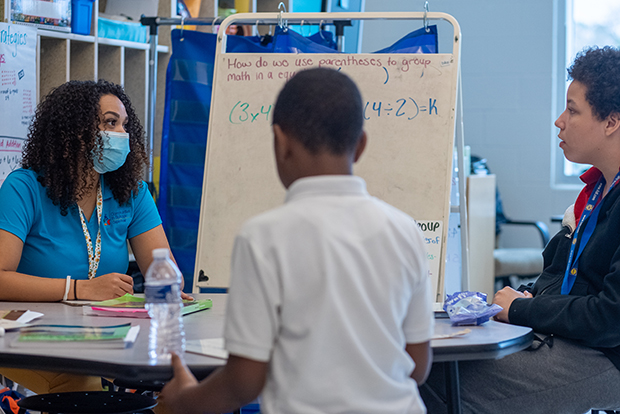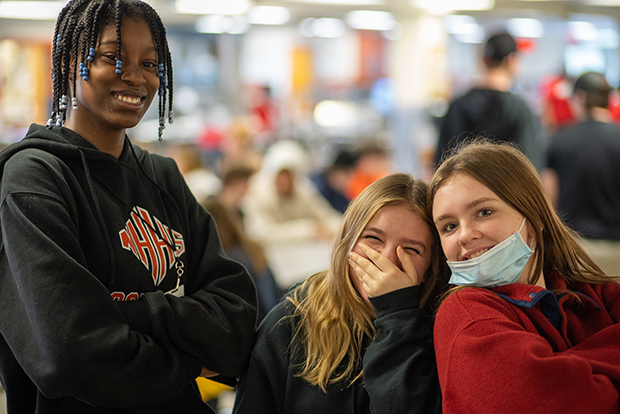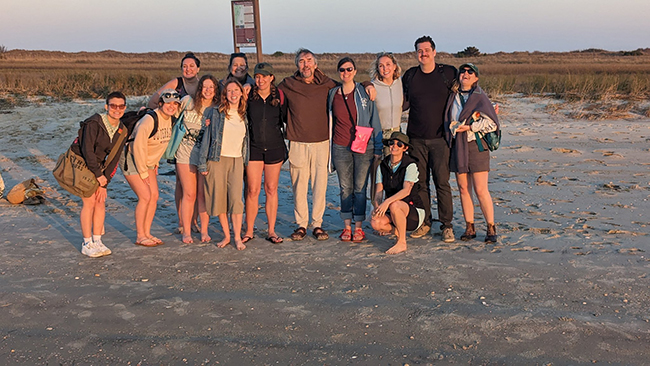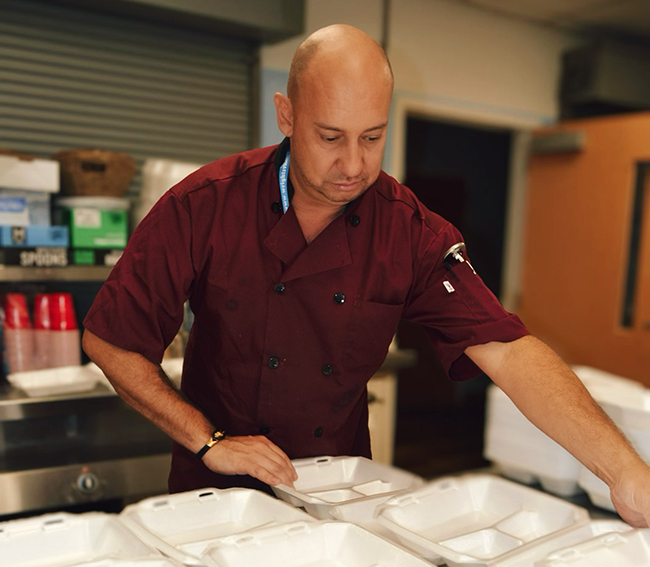Empowering Students Both In and After School
03 May 2022
Across New Hanover, Pender and Duplin County, Communities In Schools is connecting students to programs and resources
By Lori Wilson » Photos by G. Frank Hart

In a small, colorful building at the corner of 11th and Orange Streets, big things happen. Here, Communities In Schools (CIS) of Cape Fear executes just one of their many programs in the name of their mission: empowering students to stay in school and achieve in life. Executive Director Louise Hicks has been on the frontlines of CIS since 2005, while it gradually grew from an organization with only three staff and one building, to a tri-county nonprofit with a budget of $3.5 million and 56 employees.
The bright brick facility on Orange Street, better known as WIRE – Wilmington Youth Center for Inspiration, Recreation, and Education – supports the needs of disenfranchised youth through after-school programming. Offering STEM-based activities and tutoring, WIRE students are given a chance to improve their math and literacy skills.
“We want every kid to know someone has their back,” Hicks explains.
Hicks joined Communities In Schools 17 years ago, as a part-time director, after leaving her position in marketing at the Children’s Museum of Wilmington.
“I wanted a chance to impact all the kids,” Hicks says, “and to reach more of the students who need support.”
CIS believes that all students deserve five basic principles: a relationship with a caring adult, a safe place to learn, a healthy start, a marketable skill, and a chance to give back. To achieve this, Hicks says, the “heart of their mission” relies on student support specialists, who provide services to youth in need, such as those at risk of dropping out.
Within 21 schools across New Hanover, Pender, and Duplin County, CIS has placed Specialists who connect students to programs and resources that address mental health, academic achievement, mentoring, and more. The organization just added five more schools in January and strives to expand this list as long as needs exist.
“We are really tracking our intentions,” Hicks says, “to understand why the child was referred to us . . . The range of needs is huge.”
Like many nonprofits in the area, Hicks and her team are no stranger to pivoting. They have supported their community during the toughest of times these past few years, from Hurricane Florence to the height of the Covid pandemic.

“We never closed our doors,” Hicks says proudly. “We offered remote learning labs to our students. When fewer students were in the classrooms, more kids were in our rooms.”
And their commitment has not gone unnoticed. The Cape Fear chapter of the Communities In Schools (a national nonprofit) is one of 40 affiliates who received a generous donation from philanthropist billionaire Mackenzie Scott. They were gifted $1.5 million.
“It turns out I’ve done a good job to support our people,” Hicks says modestly.
In addition to in-school and after-school assistance, CIS offers a summer program called Freedom School, a six-week literacy and cultural enrichment program that provides participants with one new book a week (to expand their library), while empowering them to make a difference in themselves and their community, big and small. Freedom School launched in large part to the efforts of Marrio Jeter, the Director of Operations, who has been with the organization for about a decade.
Jeter made the career switch to education after eight years working in probation parole for the Department of Corrections. Hicks met Jeter in 2007.
The two are like-minded and understand the value of investing time and money in our community “on the front end” in order to save “on the back end” – that is, connecting with youth through efforts such as drop-out prevention as a way to stave off undesirable outcomes.
“Louise found me at my other job, and we got to talking and she said, ‘I’m going to hire you to work for me,’” Jeter explains.
The rest, they may say, is history. In many significant ways this duo fights for the future of the local community, especially those who are marginalized.
“Education remains critical and important as the achievement gap for people of color gets wider and wider,” Jeter explains.
In considering drop-out prevention, CIS provides not just educational support, but support for learning basic life skills and technical skills. Other programs include Teen Court, a diversion program using restorative justice for low-level juvenile offenders; the Baby Steps Program, a young parent support group that helps new and expecting parents aged 21 and younger; a literacy support program for 3rd graders; and 21st Century Community Learning Centers.
CIS of Cape Fear works to ensure all students achieve their goals in school, yet Hicks and Jeter also hope CIS participants understand the impact they can make as young people, even on a global perspective.
“It’s our five-year plan to do more of what we do – to deepen, sustain, and grow,” Hicks says, her eye on the future for CIS.ciscapefear.org














